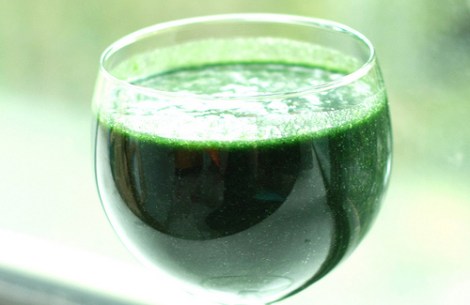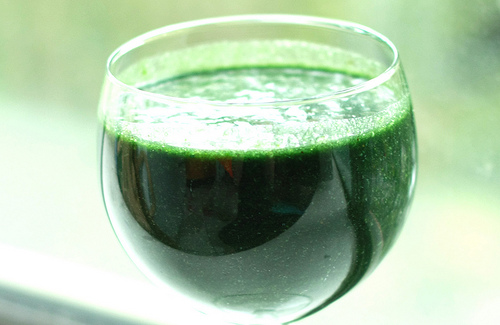
SweetOnVegIt does sort of look like something Snow White’s stepmother would feed her.
Melissa McEwen writes about the newest menace to our health and to society: KALE.
For instance, did you know that kale contains sulfur?
Kale is also rich in sulfur and compounds that convert to sulfur, which is the chemical that makes rotten eggs smell putrid. One metabolite of sulfur, S-methylcysteine sulphoxide, is known to cause “kale poisoning” — severe hemolytic anemia, a life-threatening breakdown of red blood cells, in livestock. Poor sulfur digestion is associated with many serious illinesses in humans, though whether it causes them or merely exacerbates them remains to be seen.
Your organic kale chips aren’t safe, either.
Even organic kale might be rife with harm. Laverlam, a common organic pesticide, may trigger allergic reactions, which are on the rise in the United States today. As if kale didn’t destroy enough animal habitat, mineral oil used in organic production destroys the microhabitats founds in soil that are home to a great deal of biodiversity.
Should you panic? Um, no.
McEwen is making an important point here: With the right scientific studies, you can make pretty much any food sound like it’s going to kill you. This is a hard point for people to understand. So much so that McEwen had to add the “psych!” portion to her post earlier than she meant to:
I was going to put this part up the next day, but the reaction I got from the post was so extreme that I almost immediately felt guilty. People sent me emails asking advice about other vegetables that might be bad. Some of the comments were hilarious, some just made me feel bad.
The point is that yes, there are real reasons to be concerned about basically any food that we consume, if that food is being consumed in large quantities, to the exclusion of other food. Or, as McEwen puts it, “Maybe you shouldn’t juice a pound of kale and drink it for breakfast every day.” But that doesn’t mean kale is bad for you. It just means that no food is a miracle food, and bingeing on anything — even kale — has its drawbacks.




